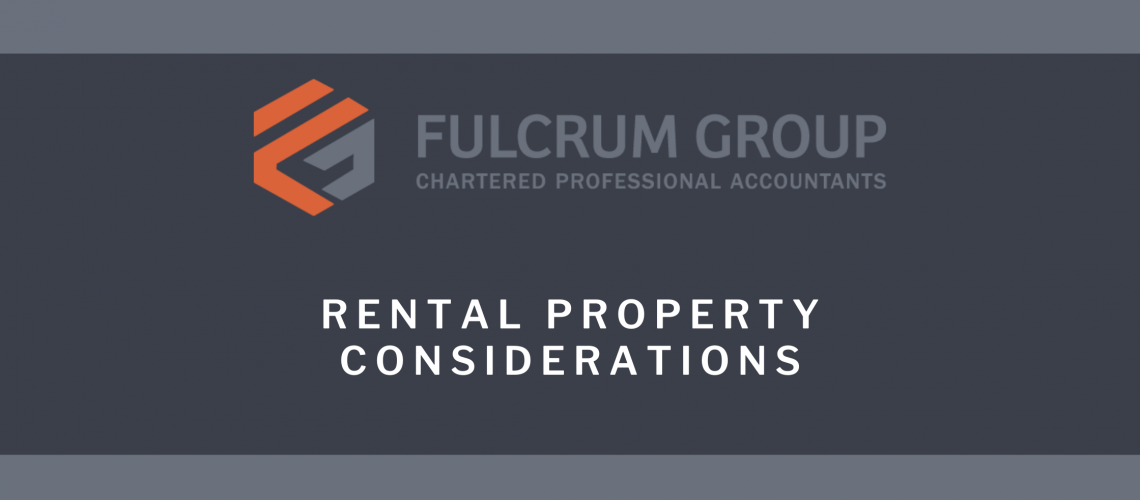Are you considering purchasing a rental property or converting your existing property into a rental property?
Considerations:
You should always have a signed rental agreement in place with your tenants outlining the terms of the lease including but not limited to:
-
- the cost of the lease,
- the amount of deposit required,
- factors that impact the return of the deposit at the end of the lease term,
- length of the lease term,
- and any other factors that may be important to you, such as pet rules, etc.
When setting the rental price, consider the additional costs that you may have with the property and who is responsible for these costs (these should all be outlined in the rental/lease agreement discussed above) to ensure that your monthly rent is sufficient to meet your costs. Things to consider include:
-
- The amount and frequency of your mortgage payment,
- Monthly or annual property taxes,
- Potential repairs,
- Monthly utility costs
Another consideration is whether to require your tenants to get renters insurance and provide proof of insurance to you to ensure all parties are covered in case of any issues
It is important that you keep good records of all income and expenses related to your rental property as you will need these when it comes time to file your taxes in the spring. For tax purposes, any income that you receive from your rental property is considered to be taxable income. You are able to reduce this amount by any eligible expenses that you incur on the property. Expenses include things like:
-
- Property taxes
- Utilities
- Repairs & Maintenance
- Property manager fees (If one is used)
- Mortgage interest
- Property insurance
- Advertising costs
- Professional fees (accounting/legal)
- Motor vehicle costs when driving to the property to perform repairs, etc.
GST is not required to be recorded on any income or expenses in relation to Residential property rental income. It is required for commercial property rental; however.
Change in Use
Another thing to consider is the treatment of the home before or after it is a rental property.
Every time you change the use of a property, you are considered to have sold the property at its fair market value and have immediately reacquired the property for the same amount. This is could mean a deemed disposition of a principal residence if you had previously lived in the home yourself. If it was your principal residence prior to converting it to a rental, it is possible that you will have no immediate tax consequences, depending on your situation.
If you are considering renting the property out for only a short time and then living in it again at a later date, there is a tax election that can be filed to reduce any tax consequences later. If you find yourself in this scenario, contact our office for more information and steps to take to ensure that you are in the best tax position possible.



